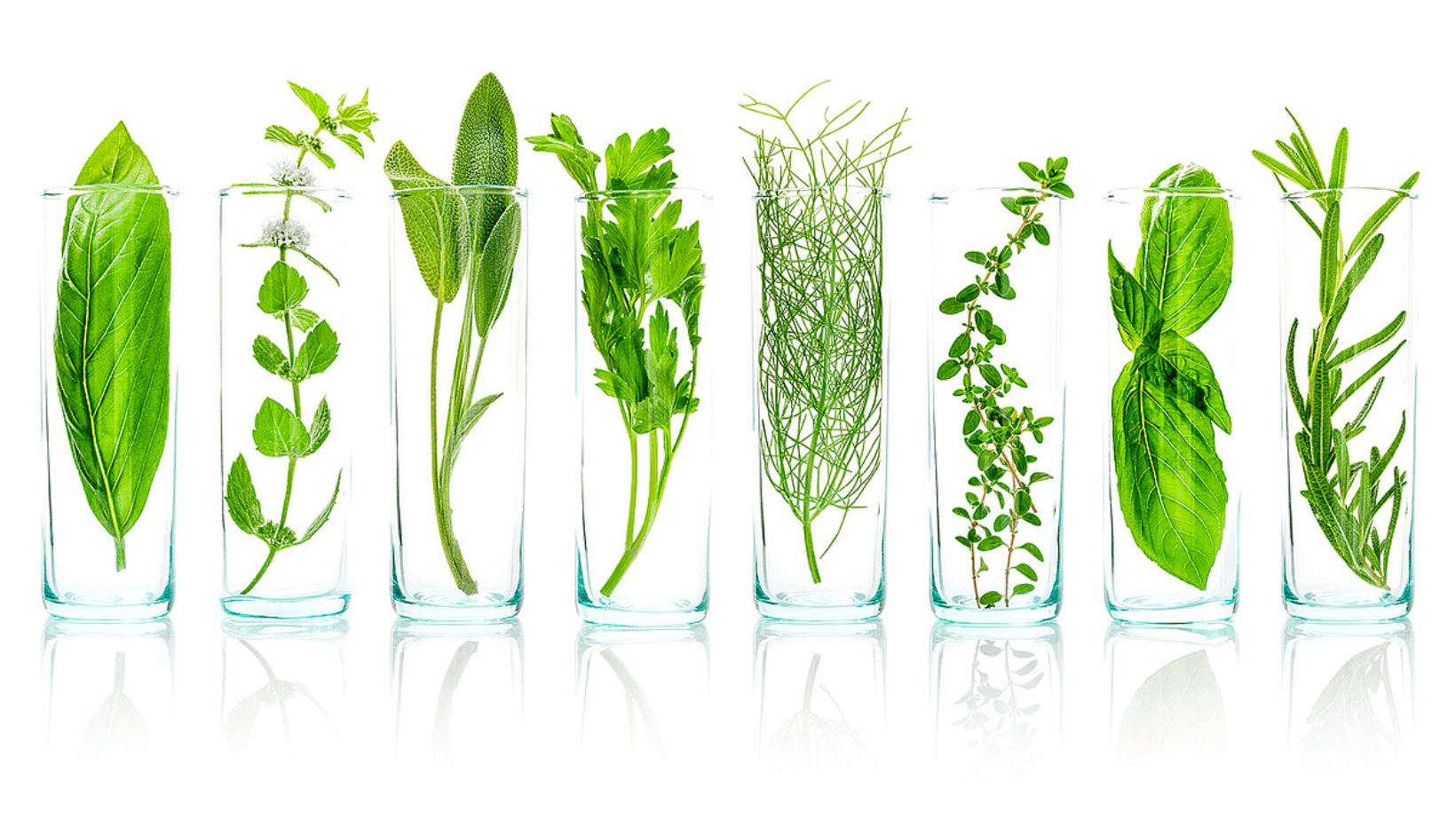Not all nutrients are created equal: BIOVIT’s Ky Wright explains
BIOVIT is the UK’s leading expert in plant-derived nutrients for food. They have developed the first clinically tested organic, plant-derived multi-nutrient blends to replace synthetic multi-nutrients in food manufacturing, and are conducting groundbreaking research on plant-derived vs synthetic nutrients, which could impact food labelling, dietary advice, and the sustainability of food production.
Synthetic nutrients, consumed by over 80% of the population, may not be as effective as natural counterparts. To tackle this, BIOVIT plans to conduct clinical tests and launch the BIOVIT Blend of 12 essential nutrients..
BIOVIT blends are produced entirely of organic plant extracts, are batch-tested and standardised for nutritional content, in collaboration with leading health experts.
We spoke with Ky Wright, the CEO and the founder of BIOVIT, about his path to BIOVIT, the lack of accountability in food labelling regulations, and synthetic vs natural vitamins and minerals.
V-Land UK (V-L): Hi Ky. We’d love to know more about your journey into veganism.
Ky Wright (KW): So, the first proper business I set up was an ice cream business with a friend when we were seventeen, which we ran in the summer holidays. After we finished university, we did it full time, and it became a frozen yoghurt business called ‘Lick,’ we had a shop in Brighton and went into retail.
At that time, I was a vegetarian, but I wasn’t vegan. I was brought up on a vegetarian diet, and meat didn’t massively appeal to me.
When I was working at the frozen yoghurt business, there was a moment when something clicked, and I stopped eating dairy and sugar; it became uncomfortable marketing unethical, unhealthy foods, and six months after this switch, I decided I had to stop.
At the same time, I was interested in meal replacements because they were first emerging. With meal replacements, I loved how logical and rational they were, as if our bodies work like machines. You just have to figure out what the machine needs, what the fuel is, and then put the fuel in. It is quite comforting in the sense that you can break it down.
However, the massive flaw with meal replacements, which took me quite a while to fully understand, is that they are made from synthetic vitamins. All the existing meal replacement products are just synthetic vitamins and minerals, with some protein and typically artificial flavouring and sweeteners. But synthetic vitamins and minerals don’t necessarily work as well.
Most people don’t know this, including myself, until trying to make an organic meal replacement. Then I learned through organic certification companies that you can’t use synthetic vitamins and minerals.
I realised there was such a thing as a synthetic vitamin or mineral. Once you start to unpick them to discover what they are, they're typically made of petrochemicals. They are similar, but not identical, except for vitamin C (ascorbic acid). So molecularly, they are similar but not identical. The synthetic ones are missing all the synergistic enzymes and cofactors, which your body needs for proper metabolism.
So, during that phase of running the dairy food business, I got really interested in nutrition and thought about food more deeply in terms of health and its effect on consciousness. At that time, I was super interested in neuroscience and almost started a new degree in it. I was so interested in it and was self-educating myself through reading textbooks and other things. I learned how incredibly similar the conscious experience must be for different animals.
You realise that we are not so different from animals. You can only really consume meat and dairy if you think humans and animals are fundamentally different. Or that our experiences aren't comparable, which, you know, it doesn't take much consideration to realise that's ridiculous.
There is a lack of unity, which is at the core of the problem with the human condition: a lack of oneness and harmony.

V-L: With vitamins and minerals such as vitamin D, how is it that they can be considered unsuitable for vegans?
KW: Certain ones are derived from animal sources. Vitamin D, for example, tends to be derived from sheep’s wool.
Often, with synthetic vitamins and minerals, there’s no way of knowing they’re in a food product. Food labelling regulations say that you’re meant to make it clear, but practically nobody does that, and what you don’t have to show on food labelling is what the source material of the synthetic vitamin and mineral is; in some cases, it might be derived from a cow’s brain.
Even with food products claiming there is ‘natural flavouring,’ such as strawberry flavour, it could be made of any substance.
V-L: BIOVIT describes synthetic vitamins in our food as ‘the biggest food conspiracy yet,’ as in some cases they are ineffective and could even be harmful to health. How do companies get away with not stating the truth about what is in their products?
KW: There's a distinct lack of accountability in the world of nutrition because it's so hard to establish causality. It's difficult to pinpoint and definitively attribute health outcomes, such as cancer, to a specific synthetic nutrient due to the diverse range of foods consumed and the multitude of influencing factors.
When you do nutritional studies like we do, you do your best in the study design to quieten down the noise of all the uncontrollable variables, but obviously, you'll never do that perfectly.
This issue goes across the whole food industry spectrum, such as the tax laws in zero-ratings: in a nutrition shake, you pay VAT, but not on a milkshake or a snack bar with seeds in.
At every level, governments have set rules that make junk food cheaper than healthy food, while investing money to solve the food problem.
V-L: Your research and clinical development with BIOVIT will enable organic products to be fortified. Why is this such a big deal, and why couldn’t they be fortified until now?
KW: When looking at how food companies fortify food, such as plant-based milk, meal replacements, or Marmite with vitamin B12, they all use synthetic vitamins and minerals, which companies are meant to declare, but they don't, so there's no real way for the consumer to know that synthetic vitamins are in there.
Organic certification prevents the use of synthetic vitamins and minerals. So, now you have organic food companies that make organic products that consumers trust. There are no additives, minimum artificial fertilisers, etc. But those food companies can’t make the sorts of foods that you can make if you can fortify them, like meal replacements.
So, BIOVIT exists to enable organic food fortification because it’s a useful, smart thing to do.
Going back to the original idea of the meal replacement, if you’re on a plant-based diet and you want to get all your iron from food, you might not have the time or opportunity to do that because it’s a large amount. The BIOVIT blend would help solve that problem, as organic food companies can fortify naturally.
It also means that companies using synthetics can switch to nutrients that tend to work better. It works to encourage companies currently using synthetics to be clean, and organic food companies to make new product lines that they couldn’t make before.

V-L: What can you expect the impact of BIOVIT to be on the food industry and food certifications?
KW: As a business-to-business company, we operate to convince food manufacturers to switch from synthetic to plant-based nutrients, providing access to their consumers to reach a large scale quickly.
This time next year, after we've done the first pilot study, instead of me just saying our nutrients are more bioavailable and more effective, I'll be able to qualify and quantify the effect on a population level.
Whether that's getting rid of nutrient deficiencies like tiredness, memory loss, or a range of micronutrient deficiencies, which people quite often mistake these symptoms for ageing, it may be that after a period of switching to natural nutrients, people will feel better.
If you’re eating healthier, you can act more intelligently, think more clearly, and raise your consciousness. The symptoms of nutrition deficiencies can prevent you from operating at your optimum. So, the macro effect would be to increase the general health of the species on the planet.
V-L: With a topic as big as this and research that is based on the health of the public and everyday foods we eat, how will you publicise this and market your findings?
KW: I think it's really hopeful. For example, we recently did a survey with Viper, an independent surveying company. We looked at five of the biggest food products on the market. We asked 500 consumers if they expected the nutrients in those products to be synthetic or natural, and 77%, on average, thought they were natural; also 90% of the people, would rather have natural nutrients. So, it shows people want them; all that is needed is more awareness.
Synthetic vitamins have only been around for 87 years. They've only really been around for one generation. There’s growing evidence that some may not be effective or healthy. I would imagine there will be a threshold that will be breached when it breaks into the public consciousness.
With marketing, while we’re a small, new company, we can do our marketing through research and create solid, credible data that, hopefully, media companies can find interesting to share.
V-L: How does BIOVIT fit into retailers’ markets and what’s already out there?
KW: We’re not the first company to make organic or plant-derived nutrients, but we are the first to develop and test them clinically.
There are existing suppliers out there. In my previous business, as a customer trying to buy from those suppliers, there were major problems, which I think is why plant-derived nutrients aren't mainstream. There's a lack of precision, scalability, reliability, and a lack of evidence.
For corporate customers, which are the ones you really need if you want to break into the mainstream, as the current suppliers of plant-derived nutrients fall at those hurdles, it’s not currently an option for them; we’re fixing these problems with the £500k government funding we’ve received for our research project.
V-L: Where can we find out more about BIOVIT and what’s upcoming with your research?
KW: Our website is biovit.com, where you can sign up for our newsletter. That’s the best way to get the most up-to-date information about what’s coming out of the research.
Next year, we will start a UK government petition around food labelling to clarify whether products have synthetic or natural nutrients in them yet.
Thank you to Ky and BIOVIT for all you are doing to showcase the benefits of natural, organic, plant-based nutrients and expose the truth about what’s in our everyday foods.
If you are interested in learning about how nutrition in a plant-based diet could aid your well-being, check out exploring the power of plant-based nutrition with nutritionist Callum Weir and can a plant-based diet help prevent and treat type 2 diabetes?
